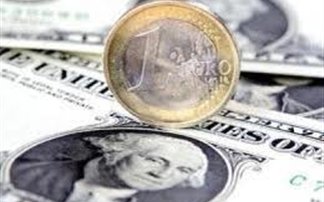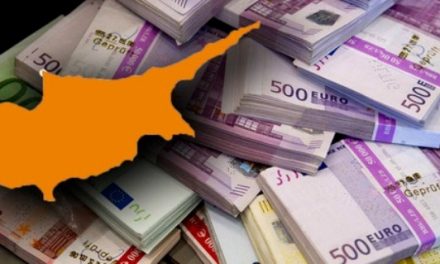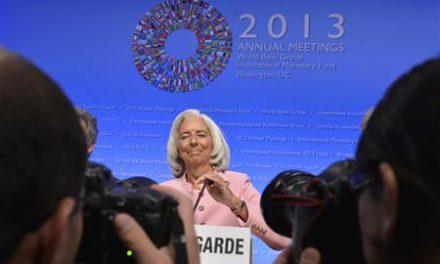The euro rose from a record low versus the Swiss franc as German Chancellor Angela Merkel said yesterday she would work with theEuropean Central Bank on a debt plan for Greece.
Europe’s shared currency reversed its losses against the Swiss currency after Merkel retreated from demands that bondholders shoulder a “substantial” share of a Greek rescue, easing concern the region’s sovereign debt problems will worsen. Currencies of commodity exporting countries dropped this week as raw material prices slumped by the most in six weeks. The dollar gained against the euro before a Federal Reserve policy meeting next week.
“The focus for the market is the situation transpiring in Europe and how much risk is in the system,” said Camilla Sutton, head of currency strategy at Bank of Nova Scotia in Toronto. “We are moving very quickly from one side of the boat to the other in terms of euro and it’s highlighting how much uncertainty there is.”
The euro rose 0.4 percent to 1.2142 francs, from 1.2098 June 10, and reached a record 1.19466. It weakened 0.3 percent to $1.4306, from $1.4347 last week. The shared currency fell 0.6 percent to 114.52 yen, from 115.24.
The dollar dropped 0.3 percent to 80.05 yen, from 80.32, a fourth straight week loss.
Year-to-Date
The 17-nation currency has gained 2.5 percent this year against nine other developed-nation currencies, according to Bloomberg Correlation-Weighted Currency Indexes. The dollar has declined 4.8 percent while the yen has lost 3.4 percent.
Net dollar short positions against the euro, yen, pound, Australian dollar, Canadian dollar and Swiss franc rose for a third week and reached 185,700 in the five days ended June 14, according to the Commodity Futures Trading Commission figures released yesterday and data compiled by Bloomberg.
New Zealand’s dollar and Sweden’s krona fell the most against the dollar this week among the 16 most-traded currencies. The kiwi, as the South Pacific island nation’s currency is known, lost 1.1 percent to 81.28 U.S. cents, from 82.14. The krona fell 1.4 percent to 6.4142 per dollar, from 6.3273.
New Zealand’s dollar weakened after earthquakes with magnitudes of 5.2 and 6.0 struck near Christchurch, according to the U.S. Geological Survey.
The Thomson Reuters/Jefferies CRB Index of commodities fell 3.6 percent, the biggest drop since the week ended May 6. The MSCI World (MXWO) Index of equities dropped 0.6 percent.
The euro plunged the most in almost six weeks against the dollar on June 15 after Greek Prime Minister George Papandreou’s government lost political support. The currency recovered yesterday as Merkel and French President Nicolas Sarkozy reached an agreement on the Greek crisis at a meeting in Berlin.
Vienna Agenda
“The aim is involvement of the private sector on a voluntary basis, and for that the Vienna Initiative, as it’s called, is a good basis,” Merkel said. “I think we can achieve something on this basis.”
Adopting the Vienna plan, used during the financial crisis of 2009 for eastern European units of banks to maintain their exposure, would involve encouraging creditors to roll over expiring bonds, buying time for Greece until its austerity program shows results or until a permanent rescue fund kicks in from mid-2013. A rollover involves reinvesting the proceeds from maturing bonds in new securities.
“If Sarkozy and Merkel are indicating that there is progress in Europe, then you know that there is progress and that’s what the market wanted to see,” said David Watt, senior currency strategist at Royal Bank of Canada’s RBC Capital unit in Toronto.
Italy Watch
Italy’s Aa2 local and foreign currency government bond ratings may be cut by Moody’s, the company said yesterday.
“With the focus squarely on the euro zone, Italy being placed on review by Moody’s does highlight the idea that there are a number of issues affecting Europe,” said Omer Esiner, chief market analyst in Washington at Commonwealth Foreign Exchange Inc., a currency brokerage. “There are a number of headwinds to Europe’s recovery and even some of the core euro- zone economies are facing serious challenges, including Italy.”
The Dollar Index, which measures the greenback against the currencies of its six major trade partners, rose even as U.S. economic reports showed a slowing recovery. The index advanced 0.3 percent to 75.983 from 74.795 last week.
The Fed Bank of New York’s general economic index dropped to minus 7.8, the lowest level since November, from 11.9 in May. The median forecast in a Bloomberg News survey of economists was 12. The Fed Bank of Philadelphia’s general economic index fell to minus 7.7, the lowest since July 2009.
The Fed’s policy-making Federal Open Market Committee will meet June 21-22.
Economic View
Fed Bank of Richmond President Jeffrey Lacker said recent U.S. economic data have prompted him to reconsider his forecast for growth.
The data are “causing us to rethink our outlook for growth,” Lacker said to reporters after a speech June 13 in Roanoke, Virginia. “We could be stuck below trend for some time,” he said.
The Conference Board’s gauge of the outlook for the next three to six months rose 0.8 percent after a revised 0.4 percent decline in April, the New York-based group said yesterday. Economists forecast a 0.3 percent gain, according to the median estimate in a Bloomberg News survey.
Two-year U.S. Treasury note yields fell for a 10th straight week, the longest slump in 25 years. They ended the week at 0.38 percent, from 0.4 onJune 10.
“Dollar-yen is going to struggle to move higher without U.S. yields moving higher,” said Derek Halpenny, London-based European head of currency research at Bank of Tokyo-Mitsubishi UFJ. “We’ve had disappointing data from the U.S., so that’s helped contain the two-year yield.”



















